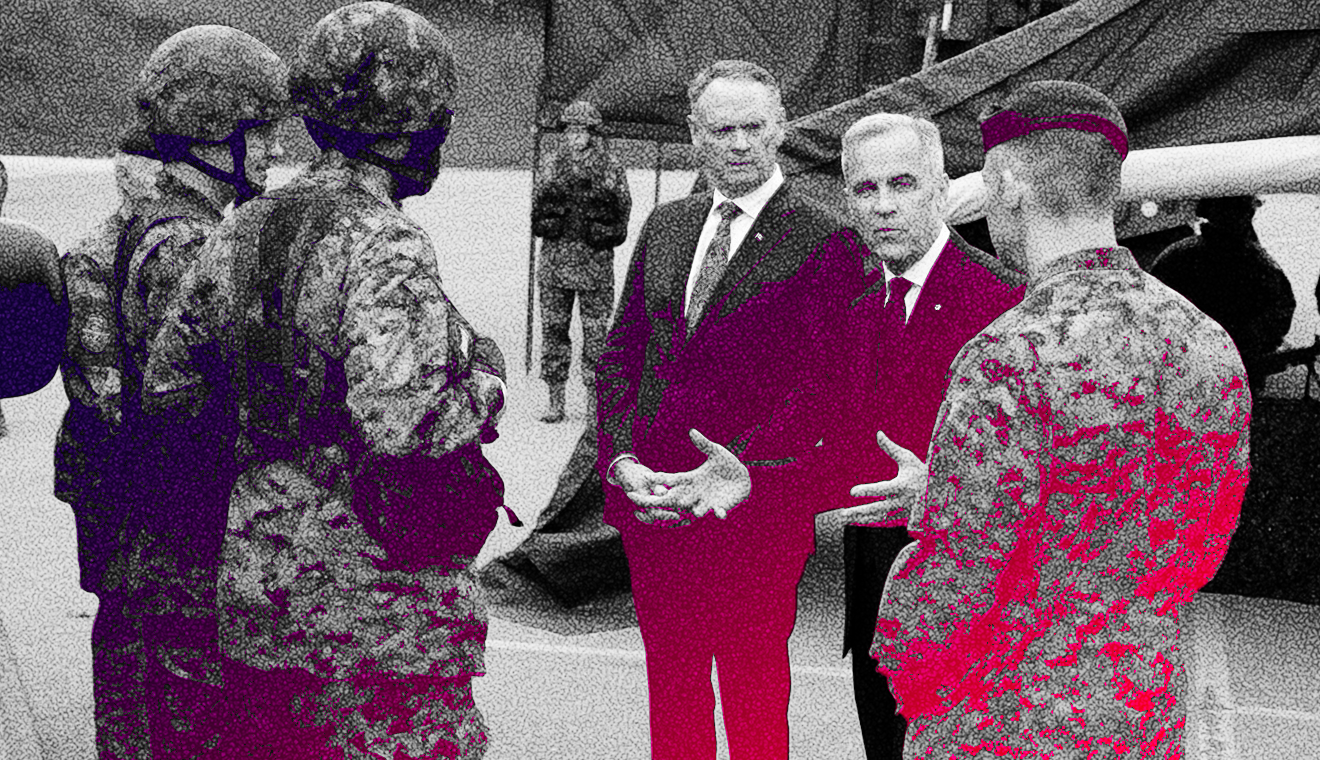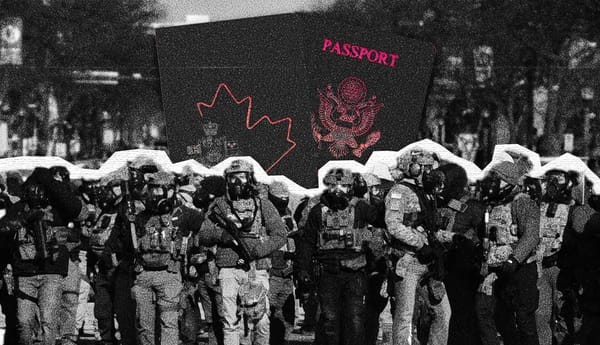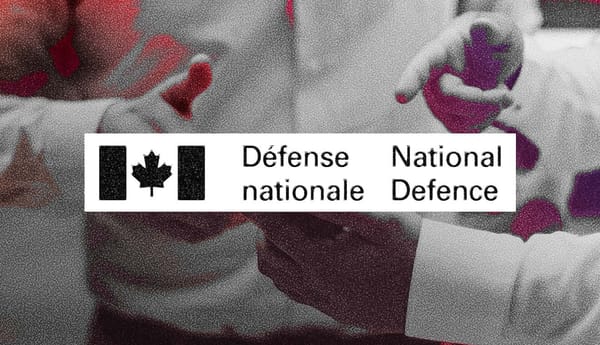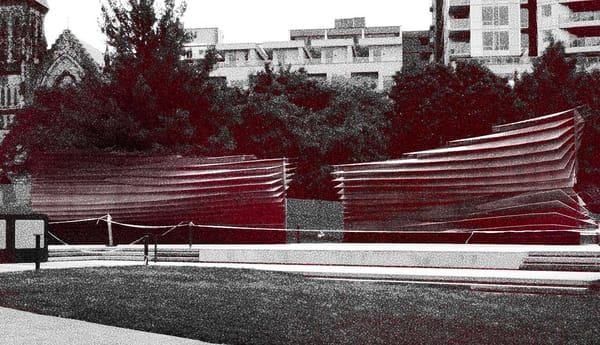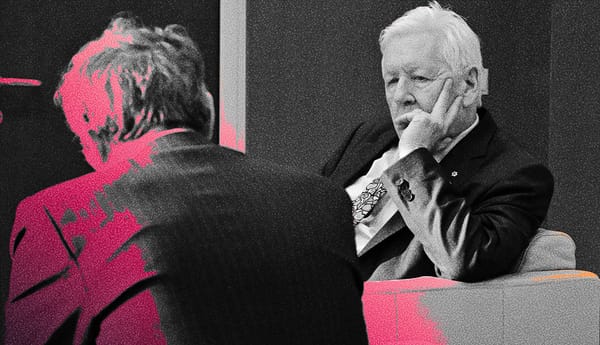Includes update.
Canada’s Department of National Defence (DND) announced this month it is awarding two contracts worth a total of $169 million to an American company whose subsidiary a federal jury in the United States last year found legally responsible for the abuse of three Iraqi men at an American-run prison.
CACI is one of the latest American companies to win a major Canadian military contract despite Prime Minister Mark Carney’s promises to move away from deepening defence ties with the U.S.
In a press release published on July 9, DND said it awarded the two contracts to CACI as part of the second phase of its “Counter Uncrewed Aircraft System (CUAS) Urgent Operational Requirement.” The contract is intended to support Canadian troops deployed as part of Operation Reassurance, a NATO mission in Latvia.
“This contract includes the integration and mounting of the CUAS onto a new light armoured tactical vehicle platform, as well as in-service support for the systems for up to 10 years,” the statement reads.
Defence Minister David McGuinty was quoted as saying: “This advanced system will [...] enhance Canada’s contribution to NATO’s deterrence and defence initiatives in Central and Eastern Europe.”
With around 1,900 Canadian troops involved, Operation Reassurance is Canada’s largest current overseas military mission.
Two contract notices on the federal government’s procurement database list CACI as the vendor for one contract worth approximately $77.1 million and another worth $92 million. Both contracts were awarded competitively, according to the notices.
DND also awarded CACI a $19-million contract in February 2024 as part of the first phase of the CUAS project.
The first contract was for “CACI BEAM 3.0 omni-directional systems,” which a CACI product brochure describes as “a modular, low size, weight, and power … electronic attack system capable of detecting, identifying, locating, and direction finding the most sophisticated modern small unmanned aerial systems and associated communication devices.”
The company was also listed as a “participating innovator” at DND’s 2022 “Counter Uncrewed Aerial Systems Sandbox” in Suffield, Alta.
In a statement published on CACI’s website in May 2024, CEO and president John Mengucci was quoted as saying: “Canada and its allies face ever-evolving threats at home and while deployed abroad [...] With CACI’s superior technologies, critical sites and personnel are protected by counter-uncrewed capabilities that are operationally proven.”
CACI is a $7.7 billion USD company that provides many different types of products and services.
This included intelligence and interrogation services to support the U.S. Army’s operations in Iraq during the occupation of that country that lasted from 2003 to 2011. Some CACI employees were hired to work as screeners — and eventually as interrogators — alongside U.S. military personnel and other contractors at the now-infamous Abu Ghraib prison.
Abu Ghraib was a prison complex used by former Iraqi president Saddam Hussein to detain political dissidents. The Americans took over the facility and used it to interrogate suspects after they invaded Iraq and overthrew Hussein in 2003.
According to officers cited in a 2004 Red Cross report and as referenced in a New York Times article, “70 to 90 percent” of Iraqis who were detained by American and allied forces “had been arrested by mistake.”
Soon after the Americans took over the Abu Ghraib complex, photos emerged of jailed Iraqis suffering abuse at the hands of American guards.
One photo showed an Iraqi civilian, Ali Shallal al-Qaysi, wearing a black hood and standing on a box with wires attached to his hands. He was told he would be electrocuted if he fell off the box.
Further investigations uncovered more details about the abuse at Abu Ghraib, which included sexual abuse, rape and torture. The abuse resulted in the death of at least one inmate, Manadel al-Jamadi.
In the years following, 11 U.S. soldiers were charged with various offences over the abuse, and nine were sentenced to time in prison.
As reported by the Washington Post last November, a federal jury found CACI shared responsibility with the U.S. Army for abusing Abu Ghraib detainees and awarded $42 million USD in damages to three Iraqi men — Suhail Al Shimari, Asa’ad Al-Zuba’e, and Salah Al Ejaili — who said they were tortured at the complex.
All three men had been released from Abu Ghraib without being charged.
The jury decision came after the second trial of the case, as the first was declared a mistrial following a jury deadlock.
After the jury’s decision, CACI filed an appeal and stated it was “extremely disappointed” with the verdict.
The lawsuit was first filed in 2008 by the Center for Constitutional Rights (CCR), and faced multiple attempts by CACI to have the case dismissed. A fourth plaintiff was dismissed from the case in 2019.
Reports conducted by two generals who testified at trial implicated three CACI employees in connection with wrongdoing at Abu Ghraib, the New York Times noted in its reporting on the first trial in April 2024.
The lawyer who led CACI’s defence reportedly acknowledged that “bad things happened at Abu Ghraib.” But, CACI’s defence team argued, none of the company’s employees committed or directed others to commit any abuse, according to the New York Times.
In any case, they argued, the company couldn’t be liable because even if its employees had committed such acts, they would either be rogue employees or under the control and direction of the U.S. military.
In a verdict following the second trial, a new jury agreed with the plaintiffs that CACI was liable because it had supplied interrogators who instructed American military police officers to “soften up” the detainees, according to the New York Times.
The jury awarded $3 million USD to each plaintiff in compensatory damages and $11 million USD each in punitive damages.
“The landmark ruling puts private military contractors on notice that criminal acts outside the United States can have consequences in US courts,” according to Human Rights Watch researcher Sarah Sanbar, who wrote about the jury’s decision last year.
In an email sent to The Maple, CACI drew attention to an earlier statement and declined further comment.
The statement read: “For nearly two decades, CACI has been wrongly subjected to long-term, negative affiliation with the unfortunate and reckless actions of a group of military police at Abu Ghraib prison from 2003 through 2004.”
“The individuals liable for the egregious behavior were court martialed and punished for the crimes that occurred well over a decade ago.”
“To be clear: no CACI employee has ever been charged—criminally, civilly, or administratively—in this matter. CACI employees did not take part in nor were any of our employees responsible for these disturbing events.”
A separate lawsuit by 250 former Abu Ghraib inmates was filed by CCR in 2004 against CACI and U.S. contractor L-3 Services (formerly Titan). In June 2011, the U.S. Supreme Court declined to hear the case.
In yet another case, Englility Holdings settled with 71 former Abu Ghraib and other American-run prison inmates for $5 million on behalf of L-3 Services.
The 5 per cent GDP Target
The U.S.-led invasion of Iraq fuelled a major decline in the Canadian public’s views of the U.S.
More recently, Canadian views of the U.S. took another sharp downward turn after President Donald Trump launched a trade war and repeatedly threatened to make Canada the “51st state.”
A Leger poll in February found 27 per cent of Canadians view the U.S. as an “enemy” state.
Amid this sentiment, Carney said ahead of the April federal election campaign that Canada’s old relationship with the U.S. “based on deepening integration of our economies and tight security and military cooperation, is over.”
But critics have questioned the sincerity of that pledge, particularly as Canada recently joined other NATO countries in pledging to spend 5 per cent of its national GDP on the military at Trump’s behest.
The 5 per cent target is broken down between 3.5 per cent in direct military spending and another 1.5 per cent on infrastructure spending that could include projects also used for civilian purposes. The total figure, Carney said, will amount to about $150 billion per year.
Carney’s cabinet has been asked to make major spending cuts in other areas of government to help offset the massive military spending hike.
Meanwhile, the Ottawa Citizen reported this month, DND is proceeding to spend an initial $500 million for two new F-35 fighter jet hangars even after Carney launched a “review” of Canada’s $19-billion contract with American arms company and F-35 maker Lockheed Martin.
The U.S. will have full control over upgrades and software updates necessary to keep Canada’s F-35 jets operational, the Citizen reported earlier this year.
Israel has used its fleet of F-35s to bomb Gaza, in a campaign that human rights organizations and genocide scholars have denounced as genocidal.
Rachel Small, an organizer with World Beyond War Canada, told The Maple: “When we see Carney announcing these exponential increases to Canada’s military budget, this means not only crippling austerity in Canada, and this means not only a commitment to wage war in lockstep with the U.S., but this also means a flow of cash directly to companies, and primarily American weapons companies, that are most complicit in horrific violence around the world.”
A Pew Research poll published this month found 59 per cent of Canadians said the U.S. is the biggest threat to their country, ahead of China (17 per cent) and Russia (11 per cent).
Update, July 24, 2025, 9:55 a.m. EST: This story has been updated to include a statement from CACI.


